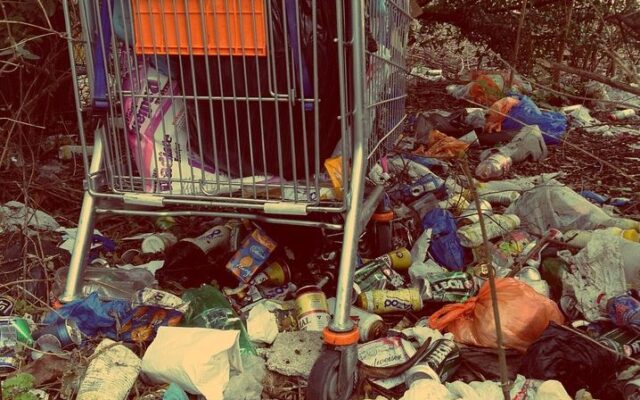
The Rising Problem of Fly Tipping in Staffordshire
Fly tipping in England increased by 4% from 2014/15 to 2015/16 according to statistics released by the Department for Environment Food & Rural Affairs this month.
Fly tipping is the act of illegally dumping waste on land not designated for waste, something which is punishable by law. However, the new statistics, along with a recent spate of fly tipping incidents in Staffordshire, show that many do not take the threat of legal action quite as seriously as they should.
Recent fly tipping in Staffordshire
Fly tipping occurs throughout the year, but in Staffordshire this year there have already been three major incidents of waste being dumped on agricultural land and on highways.
Farmers in North Stafford and Yoxall have seen mountains of waste tipped illegally on their land and face hefty bills to have the variety of rubbish removed themselves. Everything from dirty nappies to food has been discovered among the festering piles of waste, creating an eyesore in what is usually idyllic countryside.
Out on the A5, close by to Norton Canes and Great Wyrley, what looks to be trade waste was dumped by the roadside. Fixtures, fittings and furniture, along with all manner of other trade waste, is being dumped and it’s on the rise in the counties of Cannock and Stafford.
Why has fly tipping increased?
The reasons for fly tipping can be varied, with many people dumping rubbish because they haven’t bothered to locate the proper disposal avenue for the waste they’ve collected.
A more cynical reason trade waste is being dumped in the countryside and by roadsides, is because of charges at council-run waste disposal and recycling centres. With many small businesses seeking to avoid the cost, the result is a rise in trade waste appearing where people feel they can get away with dumping it – usually quiet, secluded areas such as those mentioned above.
What are the consequences of fly tipping?
There are two ways to quantify the consequences of fly tipping, the first is from a financial point of view.
The most unfair consequence is on the person who is left to foot the bill for any subsequent tidying and clearing up of illegally dumped waste on private land. The farmer previously mentioned with mounds of pre-treated waste on his land after fly tippers cut the lock on his gate in North Stafford, faced thousands of pounds in costs to have the waste removed.
When waste is tipped onto public highways or council-run areas, it’s usually the taxpayer who will end up footing the bill. While this is seemingly harmless, a rise in taxes to tackle an epidemic of fly tipping is the last thing people want.
If you’re caught fly tipping the financial penalty will vary based on the local council, but Cannock Chase Council take an aggressive stance on fly tipping, slapping offenders with a £50,000 (max.) fine or a six month prison sentence.
The second type of consequence from fly tipping involves the impact on the land itself. As previously mentioned, secluded areas are where people are most likely to tip waste, presenting a risk to the environment. Whether it’s contaminated waste and effluent seeping into the ground or running into nearby water sources, the smell which can emanate from dirty waste, or the rats and other vermin and pests which can be attracted to such areas, there is always an environmental impact.
Aside from these issues however, there is an even more obvious and immediate consequence in the unsightly nature of such spots: idyllic areas are blighted. The more it happens, the worse an area can look, ruining the countryside for everyone.
Clearly the act of fly tipping itself is unacceptable, but the consequences for everyone involved are far greater. There is no excuse for fly tipping, especially with the simple waste management services available to companies of all sizes. By managing your waste and ensuring it is disposed of in the correct manner, you not only help to keep countryside and highways clean, but you’ll also be aiding the effort to recycle and reuse as much waste as possible.
This website uses cookies to enhance your browsing experience and deliver personalised ads. By clicking “Accept All Cookies”, you agree to the storing of cookies on your device to enhance site navigation, analyse site usage, and assist in our marketing efforts.




